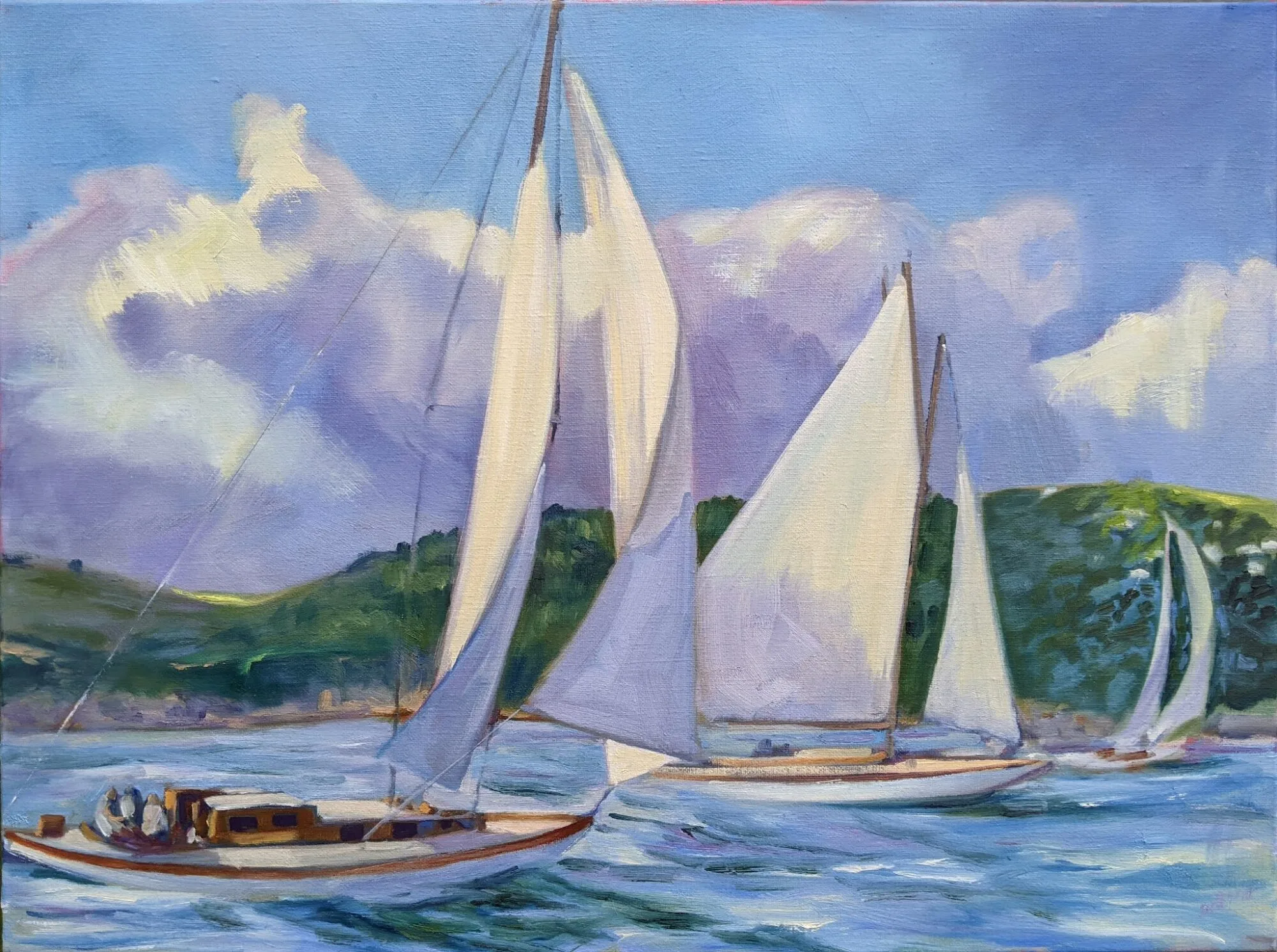Organizations like Parrsboro Creative are pioneering new ways to connect with art audiences.
 |
| Morning on the Bay of Fundy, by Carol L. Douglas. I had hoped to reprise this view in the other direction this year. |
In the normal course of things, I’d have nothing to do with video, despite it being the hottest way to connect with viewers. I don’t watch TV or movies, not because I’m a culture snob, but because I just never got in the habit.
But this is a year of change. This weekend, Parrsboro International Plein Air Festival (PIPAF) goes live, virtually. Or virtually live. When there’s no established language to describe what you’re doing, you’re on the edge of a whole new world.
At a time when many of us are hunkering down, Parrsboro Creative decided to push. They brought in a new communications director and designed a virtual auction. “I’m really excited and, yes, nervous to see how this is all going to work out,” board member Michael Fuller said.
Me too, Michael. I’d normally be packing and checking my gear and frames right now. Instead, I’m trying to master video so I can pull my weight this weekend.
 |
| Breaking Dawn, by Carol L. Douglas, painted at PIPAF. With typical perversity, Mother Nature has promised Parrsboro a perfect weekend this year. |
I cut this short videofor PIPAF at the harbor, doing it in one take because I had no idea how to trim or splice. Then I made a time-lapse video of oil painting for my students. It was in three pieces so I was forced to learn to splice the sections together. ‘Terrible’ is an understatement, but I could at least show them the oil-painting process without using up an entire class. I was surprised to find that it was an effective teaching tool, despite the poor quality.
 |
| Although I quickly learned there’s a reason TV stars wear makeup, I haven’t time to master that too. Also, I need my hair trimmed. |
I made a similar tape for my watercolor students. I’d noticed a ‘pause’ button, so decided to try it. I didn’t understand that it was pausing the video but continuing the audio. It gobbled up the most important parts of the demo. The camera shook in the wind; the lighting was terrible. Worse, I recorded it sideways. I had no idea how to turn it right-side-up.
| I did a value study and painting before realizing the camera was sideways. |
In other words, I’m pretty bad at this. But if they can design a whole new event up there in Parrsboro, I can master an itty-bitty phone. In a normal year, I could go to Maine Media Workshops and take a class, or perhaps ask my talented pal Terri Lea Smithfor help. But we’re all on our own right now, so I’m teaching myself.
I set up again. I’d figured out how to get the twist out of the camera angle, and corrected the lighting. For a few minutes, I forgot about the camera and just enjoyed drawing. It was a glimpse of possibility. But when I looked at the finished tape, I’d recorded it upside down.
 |
| Upside down. Sigh. |
Each time I start anew, there’s rebellion deep down in my psyche: “I’m too old for this!” But I’m appreciating the kick in the pants more than I’m resenting the inconvenience. On one level, coping with lockdown has breathed new life into my routine.
This is one of three virtual shows I’m participating in this summer. The others are Two Hundred Years of Farming: a Bicentennial Celebration by Maine Farmland Trust, and the 13thAnnual Paint for Preservation by Cape Elizabeth Land Trust. These organizations are using this time to develop new ways to connect with audiences. They are pioneers, and what they discover will long outlast the pandemic. They deserve our support.
